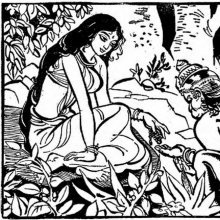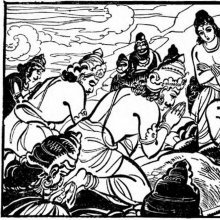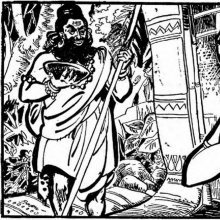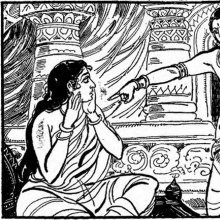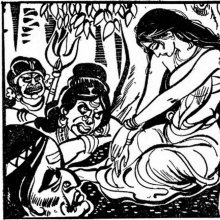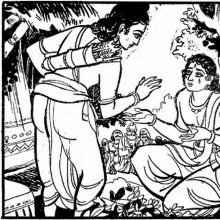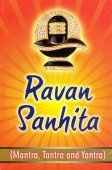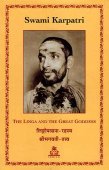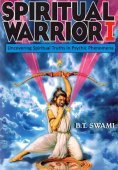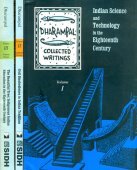Hearing, Hear, Heard: 1 definition
Introduction:
Hearing means something in Hinduism, Sanskrit. If you want to know the exact meaning, history, etymology or English translation of this term then check out the descriptions on this page. Add your comment or reference to a book if you want to contribute to this summary article.
Images (photo gallery)
(+4 more images available)
In Hinduism
Yoga (school of philosophy)
Source: ORA: Amanaska (king of all yogas): A Critical Edition and Annotated Translation by Jason Birch1) Hearing (internal sounds) refers to one of the various signs and paranormal powers (siddhi) experienced by the Yoga practicioner, according to the Amanaska Yoga treatise (presented in the form of a dialogue between Īśvara and Vāmadeva).—The last fifty-two verses of the Amanaska’s first chapter describe a temporal sequence of psychosomatic signs and paranormal powers (siddhi) brought about by absorption (laya). It begins with one moment, concludes with twenty-four years and consists of forty-seven intervals. [...] It informs practitioners of the initial experiences they may have while immersed in absorption [e.g., Hearing internal sounds], and thus provides them with some idea of their progress in the practice, [...].
2) Hearing (sounds) is denoted by the Sanskrit term Śravaṇa, according to the Amanaska Yoga.—Accordingly, as Īśvara says to Vāmadeva: “[...] [Now], I shall define the nature of that highest, mind-free absorption which arises for those devoted to constant practice. [...] By means of an absorption for five [days and] nights, the faculty of hearing (śravaṇa) from afar, which causes great wonder, certainly arises for the [Yogin]. [...]”.

Yoga is originally considered a branch of Hindu philosophy (astika), but both ancient and modern Yoga combine the physical, mental and spiritual. Yoga teaches various physical techniques also known as āsanas (postures), used for various purposes (eg., meditation, contemplation, relaxation).
See also (Relevant definitions)
Ends with: Control over hearing, Faculty of hearing.
Full-text (+4194): Shruta, Shravana, Shravya, Shrotavya, Shravaniya, Shruti, Shrotri, Akarnana, Shrutva, Ashruta, Shrutavat, Shruyamana, Shrotra, Samshrava, Ashravya, Asamshrava, Sushravas, Upashruti, Divyashrotra, Aikimva.
Relevant text
Search found 510 books and stories containing Hearing, Hear, Heard; (plurals include: Hearings, Hears, Heards). You can also click to the full overview containing English textual excerpts. Below are direct links for the most relevant articles:
Mahayana Mahaparinirvana Sutra
Chapter XXVII - On Bodhisattva Highly-Virtuous King (a) < [Section Six]
Chapter XXX - On Bodhisattva Highly-Virtuous King (d) < [Section Six]
Chapter VIII - On the Four Dependables < [Section One]
Mahabharata (English) (by Kisari Mohan Ganguli)
Bhagavati-sutra (Viyaha-pannatti) (by K. C. Lalwani)
Part 1 - On hearing of sound < [Chapter 4]
Part 8 - On knowing by the monks < [Chapter 4]
Part 1 - On the knowledge of the Law without hearing < [Chapter 31]
Chapter XVIII - The Merits of Joyful Acceptance
Chapter X - The Expounder of the Dharma
Manusmriti with the Commentary of Medhatithi (by Ganganatha Jha)
Verse 5.73 < [Section IX - Other forms of Impurity]
Verse 8.74 < [Section XII (A) - Evidence]
Verse 2.203 < [Section XXX - Rules to be observed by the Religious Student]
The Markandeya Purana (by Frederick Eden Pargiter)
Related products
(+2 more products available)
